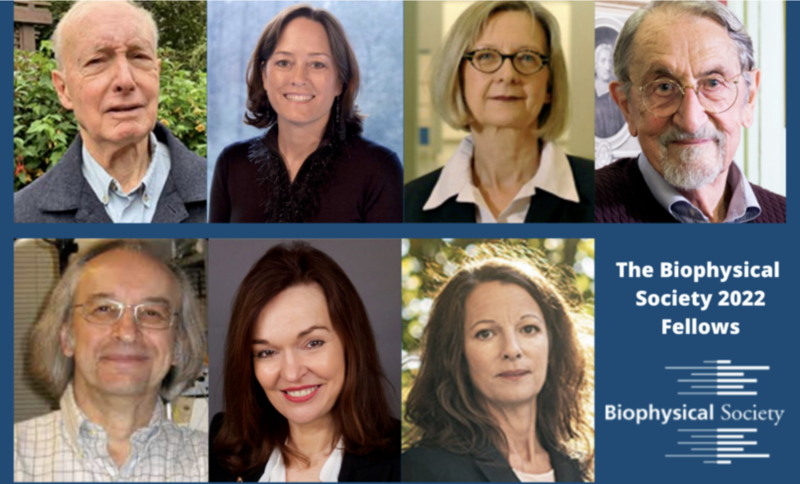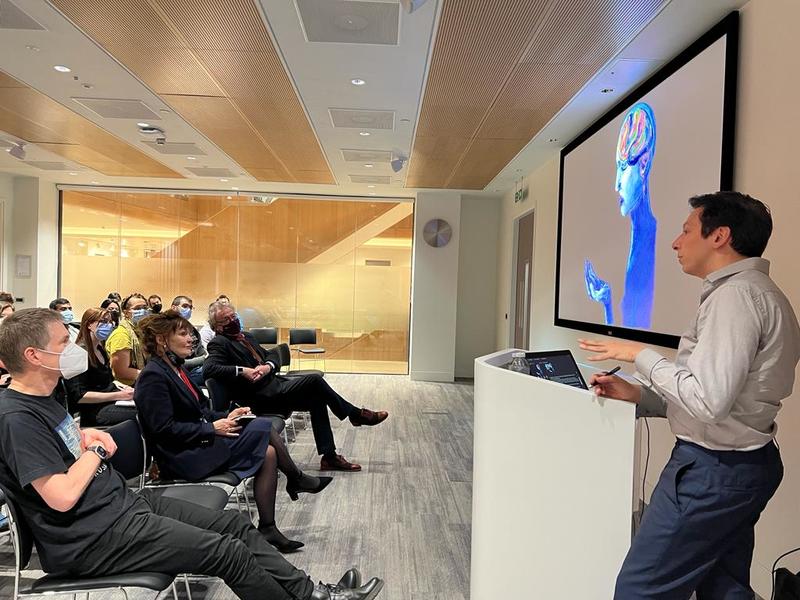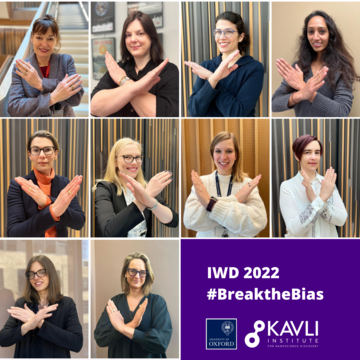Kavli Bulletin March 2022
KINsD: Oxford’s First Interdisciplinary Science Institute is now Active.
The Kavli Institute for Nanoscience Discovery (Kavli INsD), inaugurated in April 2021, is located in the centre of the South Parks Road science area at the University of Oxford. The 20th institute to be funded by the Kavli Foundation, we are also the University of Oxford’s first interdisciplinary science institute spanning the life, medical and physical sciences.
We are home to a team of faculty and researchers who hail from a range of departments but are all leading discovery into the most basic unit of life, the cell.
Kavli INsD researchers specialise in structural biology, biochemistry, pathology, chemistry, physics, physiology and engineering. They are unified by their focus on science at the nanoscale – the scale of proteins, viruses and DNA.
We are working together to make significant contributions across a range of major health challenges: antimicrobial resistance, the brain and mental health, infectious disease, and malaria – and to create new instrumentation to bring the analytical power of the physical sciences into the cell.
We aspire to carry out world-class nanoscience research, and to exemplify an inclusive, collaborative and kind working culture.
Kavli INsD is led by Professor Carol Robinson, a highly decorated chemist known for her work in using mass spectrometry to study the 3D structures of proteins.

THIS IS A QUOTE FROM CAROL THAT DEFINES KINSD WITH HER OWN WORDS. PROFESSOR DAME CAROL ROBINSON

Kavli INsD Director named Fellow of the Biophysical Society
Congratulations to our director, Professor Dame Carol Robinson, who has been named as a member of the 2022 Class of Fellows of the Biophysical Society.
The award is given annually to members of the Society who have demonstrated sustained excellence in science and contributed to the expansion of the field of biophysics.
Professor Robinson’s award is presented for her work advancing the field of native mass spectrometry of proteins and protein complexes, a technique that can provide a wealth of information on the structure, binding partners and dynamic behaviour of proteins. She will be recognized alongside six other recipients during the Biophysical Society’s 66th Annual Meeting, currently taking place in San Francisco.
Kavli INsD Director, Professor Carol Robinson Receives Two Awards
Kavli Institute for Nanoscience Discovery’s first Director, Professor Dame Carol Robinson has been awarded a prestigious 2022 Louis-Jeantet Prize for Medicine and the Benjamin Franklin Medal in Chemistry. Click here for more info.
Wade-Martins Group achieves Bronze Award for sustainable practices
The Wade-Martins Group has achieved a Laboratory Efficiency Assessment Framework (LEAF) Bronze Award in recognition of its sustainable practices.
Professor Richard Wade-Martins said, “I am delighted that the Group has been recognised with this award. Congratulations to everyone involved, especially to Gabriela Vilema Enriquez, Sarah Pearce and Milena Cioroch for their hard work and for arranging the lab audit.”

Kavli Research & Enterprise Discussions Kick off with Talk by Eminent Neuroscientist
Members and guests of the Kavli INsD gathered last week for the first institute-wide, in-person event since the institute’s opening last year.
The occasion was the inaugural seminar of the Kavli Research and Enterprise Discussion (K.R.E.D) series. The seminar took place on the 10th of March 2022. It was given by Professor Randy Bruno, a Professor of Neuroscience who recently joined the University of Oxford's Department of Physiology, Anatomy & Genetics. Professor Bruno came to Oxford from Columbia University’s Kavli Institute for Brain Science.
Professor Bruno's research focuses on understanding how the cerebral cortex enables perception and learning. In his talk, "The Many Layers of Cognition – and the many disciplines rallying to understand it", Bruno discussed his work on the architecture of cortical circuitry, and how different cell types might contribute to the geometry of neural representations to enable complex, flexible behaviour.
Bruno also described how interdisciplinary collaborations in a Kavli Institute make it possible to address the complexity of systems like the cerebral cortex. His work involved geneticists, engineers, physicists, electrophysiologists and animal behaviourists.
The K.R.E.D series aim is to bring together researchers from across the Kavli INsD, and to stimulate thinking about interdisciplinary science and its translation. Upcoming K.R.E.D events will be announced shortly.
Research Exploring the ‘Hidden World’ of Proteins Awarded Major BBSRC Frontier Research Grant
A Kavli scientist will lead a project to harness three ground-breaking technologies developed by Oxford researchers – to analyse individual proteins and decipher the complexity of bacterial communication.
The project, which has just been awarded £5.5m by the BBSRC, is due to begin this year and continue for five years. Involving a multidisciplinary team, it will be led by Professor Justin Benesch , who is based in Oxford University’s Kavli Institute for Nanoscience Discovery and Department of Chemistry. He will work with Kavli colleague Philipp Kukura and others from Oxford’s Department of Chemistry (Dirk Aarts, Hagan Bayley, Madhavi Krishnan, and Yujia Qing), Computer Science (Yarin Gal) and Zoology (Kevin Foster). They will collaborate with researchers at the University of Liverpool’s Centre for Proteome Research (Claire Eyers) and the Wellcome Sanger Institute (Sarah Teichmann).
More information can be found here.
Kavli INsD awarded funding to promote positive research culture
Being a collaborative and inclusive place to work is a core aim at the Kavli INsD, and we are proud to announce that we have secured funding for a new initiative to foster positive research culture.
The funding has been awarded by the University of Oxford’s Research Culture Enhancement Fund, and our programme will begin early in 2022. Our activities will be driven and shaped by a group of Culture Fellows, to be appointed from across the institute and represent diverse professional roles, career stages, disciplines and cultural backgrounds.
Kavli INsD director Carol Robinson, says: ‘Creating a strong, collaborative community is at the heart of what we are trying to achieve at the Kavli. We are Oxford’s first interdisciplinary science institute, and it is fantastic that we have this funding to help make that happen. I really look forward to working with members of the Institute on this.’
The Research Culture Enhancement Fund, drawn from the Wellcome Institutional Strategic Support Fund, offers seed funding for activities that aim to improve research culture in the University. The activities will align with the university’s commitment to the Concordat to Support the Career Development of Researchers.
Kavli Welcomes Two Fellows
We are delighted to announce that Dr Weston Struwe and Dr Lindsay Baker have recently joined the Kavli INsD Team.
Dr Struwe is one of eight Oxford University researchers to receive the award and the first in the Department of Chemistry. Dr Struwe’s team at the Kavli INsD will explore how complex oligosaccharides, or glycans, shape the structural dynamics of viral glycoproteins and modulate macromolecular interactions within the host. To achieve this, his team will develop and combine new methods in glycoprotein engineering and chemical crosslinking, as well as advanced methods in mass spectrometry and mass photometry, to uncover how specific glycans shape biological processes involved in host-pathogen interactions.
Our first Research Fellow in Electron Microscopy, Dr Lindsay Baker's background is highly inter-disciplinary with diverse training in physics and biology, from high energy physics to molecular virology, but her focus for more than 10 years has been electron cryo-microscopy (cryoEM). CryoEM allows sub-nm resolution structural information about cells and biomolecules to be obtained in a near native, frozen solution state.
Her latest research focuses on tools to study native cellular membranes, with special focus on development of tools for cellular cryoEM and methods to combine cryoEM with NMR spectroscopy and mass spectrometry.
Kavli Women Gathered to #BreaktheBias
To become a part of this year's international women's day movement, Kavli women gathered for a photoshoot to break the bias. Researchers crossed their arms to show solidarity and our social media posts on this matter got lots of engagement.

Academic recognition for Kavli Professors
Congratulations to our five Kavli based academics, Andrew Baldwin, Zameel Cader, Stuart Peirson, George Tofaris, Vladyslav Vyazovskiy, who have been conferred with Full Professor titles. This recognition is for the significant and sustained academic contribution to the University of Oxford, based on research excellence and influence on fields of study, teaching and ‘good citizenship’.
PhD and DPhil Completions
Huge congratulations to Susan Mesoy, Zihao Wang, and Dominic Saman for successfully completing their studies.



